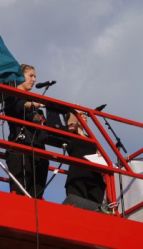Wave Atlas
A musical Ruhrepos for septet & women's choir

"Our lives are not our own.
From womb to tomb, we are bound to others. Past and present."
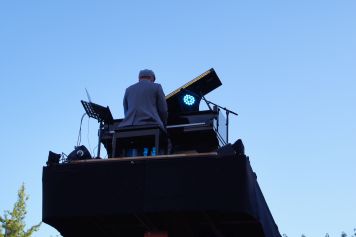
"And by each crime and every kindness, we birth our future." (Quote from the movie Cloud Atlas).
The Concept
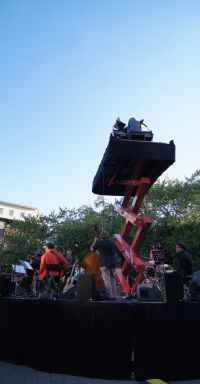 The Wave Atlas tells the story of the music of the Ruhr area. He maps the spread of the
sound waves based on some (musical) heroes from the 10th to the 20th century.
Each era strives for knowledge, liveliness, truth and to leave a lasting legacy behind.
Similar to David Mitchell's novel Cloud Atlas, there are six stories interwoven in Wave Atlas, which together span a period of more than 1000 years. They create a delicate web
of quotations and intercontextually arranged musical references. The sound waves
overlap and influence each other until finally something new emerges. Every era influences the
subsequent times. Every century the following centuries.
The Wave Atlas tells the story of the music of the Ruhr area. He maps the spread of the
sound waves based on some (musical) heroes from the 10th to the 20th century.
Each era strives for knowledge, liveliness, truth and to leave a lasting legacy behind.
Similar to David Mitchell's novel Cloud Atlas, there are six stories interwoven in Wave Atlas, which together span a period of more than 1000 years. They create a delicate web
of quotations and intercontextually arranged musical references. The sound waves
overlap and influence each other until finally something new emerges. Every era influences the
subsequent times. Every century the following centuries.
Middle Ages
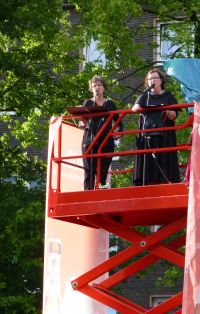 liber ordinarius:
liber ordinarius:
The musical "cartography" begins with the parchment collection of the "liber ordinarius" of the minster church in
Essen, documenting the musical life of the then women's convent in the 10th and 11th century, which is the reason for Wave Atlas
being partially composed for women's choir. The Essen Abbey was founded in the 9th century by bishop Altfrid
of Hildesheim (* around 800; † August 15, 874).
Renaissance
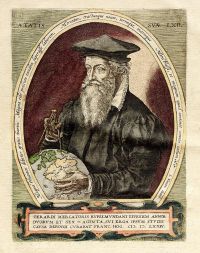 Friedrich Beurhaus & Gerhard Mercator:
Friedrich Beurhaus & Gerhard Mercator:
The next story is about Friedrich Beurhaus (1536-1609) and Gerhard Mercator (1512-1594). While Mercator (fig.)
created his cosmographic atlas in Duisburg, Beurhaus was drafting some important music theory writings in
Dortmund. For his literature Emperor Maximilian II gave him the honorary title of Comes Palatii Caesarei.
Barock
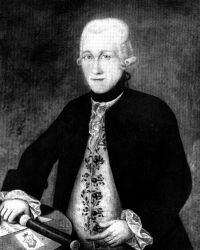 Johann Gottlieb
Johann Gottlieb
Preller:
In the middle of the 18th century the composer and organist Johann Gottlieb Preller (1727-1786) founded the Collegium Musicum
in Dortmund. For the purpose of "caring for the art of music" ["Pflege der Tonkunst"], Preller was also a frequent guest
at the manor Laer in Bochum. He was often accompanied there by his friend and patron, the baron Johann Albert Gisbert Jobst von der Leithen (fig.)
Classicism & Romanticism
 Johann Hermann Kufferath:
Johann Hermann Kufferath:
In the 19th century a new heyday of cultural life dawned for the Ruhr area. Here the story
of the musicial family Kufferath living in Mühlheim has to be told: With their work and their
compositions, the three brothers Johann Hermann (1797-1864) (fig.),
Louis (1811-1882) and Hubert Ferdinand (1818-1896) carried the sound waves of the Ruhr area to many European countries.
Johann Hermann Kufferath studied, inter alia, in Duisburg, being a pupil of the cello virtuoso and composer
Joseph Alexander (1770-1822).
Classical Modern Period
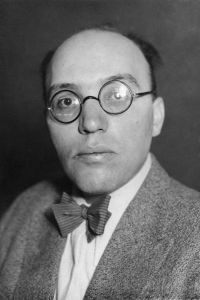 Kurt Weill & Bertolt Brecht:
Kurt Weill & Bertolt Brecht:
With reference to the first half of the 20th century, Bertolt Brecht and Kurt Weill (fig.) are to be heard.
They too submitted plans for a Ruhrepos to the city of Essen, which could not be realized at that time.
Modernism
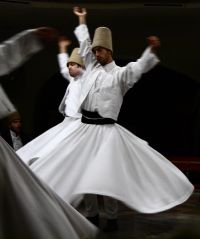 Cultural Diversity:
Cultural Diversity:
Finally, the story of the second half of the 20th century is being told as a history of immigration:
New sound waves reached the Ruhr area and enriched it's cultural-musical life.
The Musicians

Women's Choir:
Students of the Institute for Music and Musicology at the TU Dortmund as well as singers
of the Chamber Choir at the University Duisburg/
Essen (rehearsals by Lina Kueppers)

Bernd Kullack:
Violin
More Information...

Ludger Schmidt:
Violoncello
More Information...
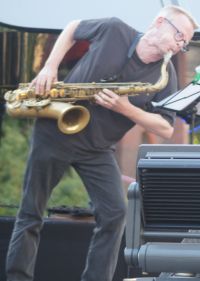
Matthias Schubert:
Tenor Saxophone
More Information....
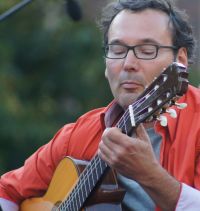
Thorsten Töpp:
Guitar
More Information...
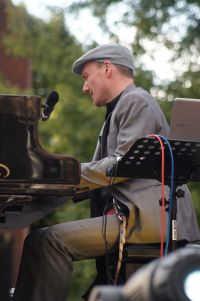
Hans-Joachim Heßler:
Piano & Sampling
More Information...

Stefan Werni:
Double Bass
More Information...

Oliver Birk:
Drums
The Performances
31. August 2013 - 18:00 Uhr
Platzhirsch-Festival Duisburg
Outdoor Stage Dellplatz
Dellplatz
47051 Duisburg
7. September 2013 - 19:30 Uhr
Carpentry Workshop Dieter Stein HolzDesign/
Carpentry Workshop Kassel Die Möbelwerkstatt
Oderstraße 9
47506 Neukirchen-Vluyn
